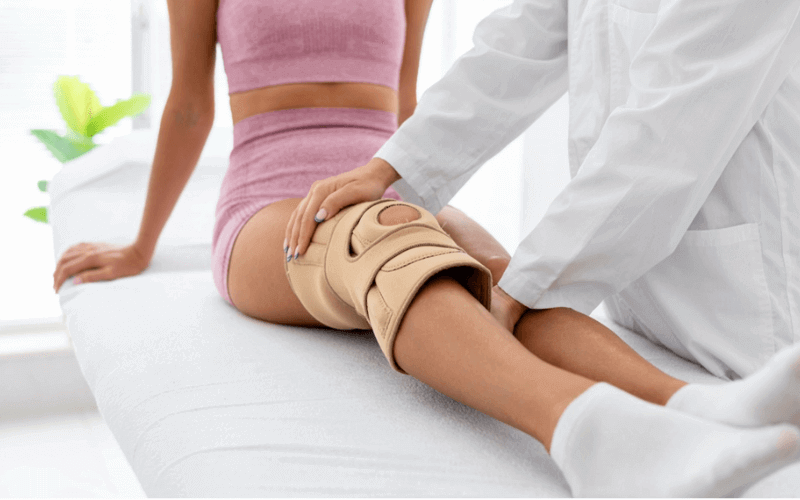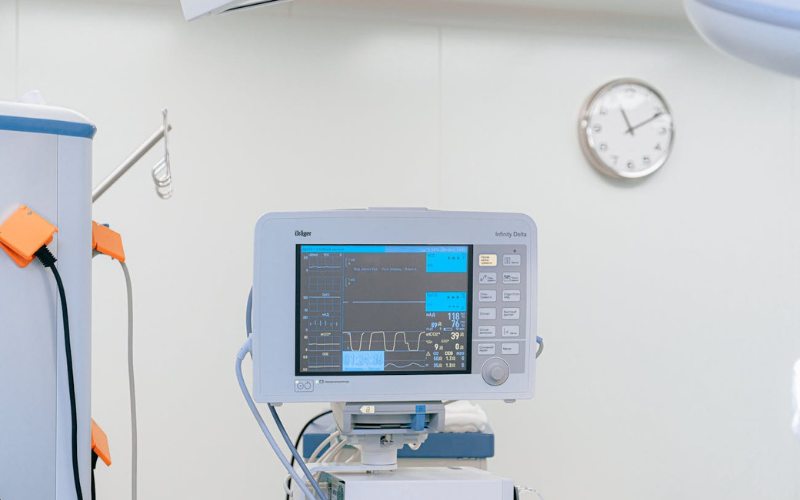Total knee replacement (TKR), or knee arthroplasty, is a surgery performed to replace the damaged knee joint with an artificial joint. It is one of the most common orthopedic surgeries performed in most hospitals. TKR is typically recommended for people with severe arthritis of the knee, which can cause pain, stiffness, and difficulty moving. Arthritis is a condition that leads to the breakdown of the cartilage in the joints. Cartilage is a smooth tissue that cushions and protects the bones. When cartilage breaks down, it leads to the rubbing of bones together, causing pain and inflammation.
TKR can also be recommended for people with other knee problems, such as:
- Severe injuries to the knee joint.
- Deformity of the knee joint.
- Bone tumors of the knee joint.
Benefits of total knee replacement
TKR can provide a number of benefits, including:
1. Reduced pain and stiffness
TKR can significantly reduce pain and stiffness in the knee joint. This is because the prosthetic joint is made of smooth materials that do not rub together and cause pain. TKR can also help to reduce inflammation in the knee joint.
2. Improved range of motion
TKR can also improve range of motion in the knee joint. This is because the prosthetic joint is designed to let the knee bend and straighten more easily. The improved range of motion, in turn, makes it easier to perform day to day activities, such as walking, climbing the stairs, and getting in and out of a chair.
3. Increased function and mobility
TKR can also increase function and mobility in the knee joint. This is because the prosthetic joint allows the knee to bear weight and move more smoothly. Increased function and mobility can make it easier to participate in activities that you enjoy, such as sports, hiking, and dancing.
4. Improved quality of life
TKR can also improve quality of life by helping reduce pain, improve the range of motion, and increase function and mobility. TKR can also help to improve self-esteem and confidence.
TKR is a very successful procedure, and most people experience significant relief from pain and stiffness after knee replacement surgery. TKR can also help people to improve their range of motion and mobility, which, in turn, makes it easier for people to perform day to day activities, such as walking, climbing stairs, and pulling in and out of a chair.
Risks of total knee replacement
TKR is a safe and effective procedure, but it does have some risks, including:
1. Infection
Infection is the most serious risk of total knee replacement. They may occur at the incision site or deep in the joint. Infections are usually caused due to bacteria that enters the body during surgery or from the patient’s own skin.
2. Blood clots
Blood clots are another potential risk of TKR. Sometimes, blood clots form in the leg veins after surgery. If a blood clot breaks loose and travels to the lungs, it can cause a pulmonary embolism, which is a life-threatening condition.
3. Nerve damage
Nerve damage can occur during TKR surgery. This can cause numbness, weakness, or pain in the leg. Nerve damage is temporary in most cases, but it can be permanent in some cases.
4.Loosening of the implant
Over time, the implant can loosen from the bone. This, in turn, can lead to pain and instability in the knee. Loosening of the implant may require revision surgery.
5. Allergic reaction to the implant
Allergic reactions to the implant are rare, but they can occur. Allergic reactions can cause swelling, redness, and pain in the knee. In severe cases, these reactions can even lead to implant failure.
Reducing the risks of total knee replacement
There are a number of things that can be done to reduce the risks of TKR, including:
- Antibiotics: Antibiotics are given before and after surgery to help prevent infection.
- Blood thinners: Blood thinners are given after surgery to help prevent blood clots.
- Careful surgical technique: The surgeon will take care to avoid any damage to the nerves and blood vessels around the knee joint.
- Physical therapy: It helps strengthen the muscles around the knee and improve range of motion. This can help to reduce the risk of loosening of the implant.
If you are considering TKR, talk to your doctor and discuss the risks and advantages of the procedure. They will help you understand the risks and take steps to reduce them.
Surgical procedure
TKR is typically performed under general anesthesia. During the surgery, the knee surgeon makes an incision over the knee and removes the damaged joint surfaces. The prosthetic joint is then implanted in place.
Note – The prosthetic joint is made of two metal components, a femoral component (for the thigh bone) and a tibial component (for the shinbone). A plastic spacer is also used to cushion the two metal components.
Recovery
Most people stay in the hospital for 2-3 days after TKR. During this time, you will get to learn to walk with a walker or crutches and how to perform exercises to strengthen your knee.
After you go home, you will continue to need physical therapy to help you regain your range of motion and strength. Most people are able to return to their normal activities within a few months.
Rehabilitation
Rehabilitation is an important part of the recovery process after TKR. Physical therapy can help you to:
- Regain your range of motion.
- Strengthen your knee muscles.
- Improve your balance and coordination.
- Learn to walk without a walker or crutches.
Your physical therapist will develop a personalized rehabilitation plan for you based on your individual needs and goals.
Tips for a successful recovery
Here are some tips for a successful recovery after TKR:
- Follow your doctor’s instructions carefully.
- Take your medications as prescribed.
- Attend all of your physical therapy appointments.
- Do your exercises regularly.
- Get enough rest.
- Eat a healthy diet.
- Avoid strenuous activities until your doctor recommends it.
Last Word
Most people who have TKR experience significant relief from pain and stiffness and improved range of motion and function. Most people who have TKR experience significant relief from pain and stiffness and improved range of motion and function. However, it’s crucial to note that the success of the TKR procedure can also be influenced by the choice of the hospital. Therefore, it is important to consider selecting one of the best knee replacement hospitals in India to optimize your chances of a successful outcome.




